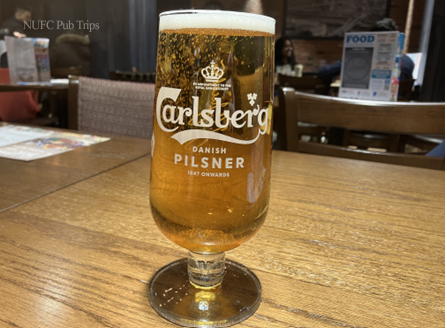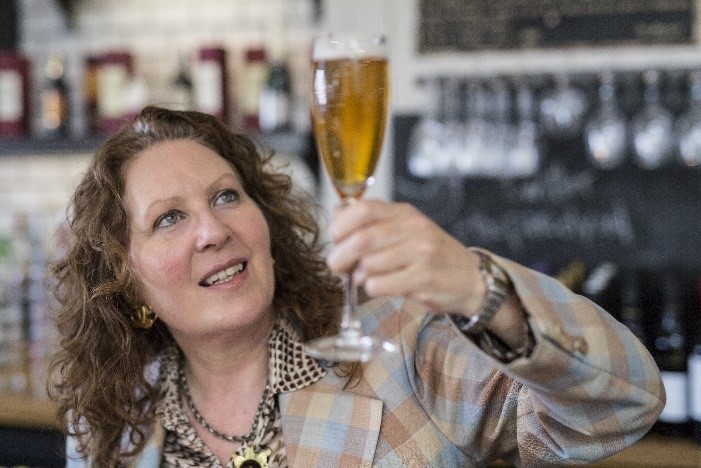
Alcoholic drinks expert/historian Jane Peyton, who currently runs the ‘School of Booze’, said
“despite tabloid newspaper reports, overall, Britons are not anti-social consumers of alcohol”.

Picture of Jane Peyton, Founder of the ‘School of Booze’. Photo provided by Jane Peyton (used with permission)
“A minority are at the weekends, but that should not taint the entire drinking culture of the UK”, Peyton added.
A report conducted by ‘Alcohol Change UK’ on the UK’s drinking behaviours also said: “Since 2005, the overall amount of alcohol consumed in the UK, the proportion of people reporting drinking, and the amount drinkers report consuming have all fallen”.
Peyton explained that “Many people in younger demographics today do not drink alcohol at all”. They added: “The latter fact is definitely a worry for alcoholic drinks brand owners and the operators of licensed premises if their future market is shrinking”.
In 2019, the UK was placed 24th on the CIA’s alcohol consumption per capita list, demonstrating that a considerable amount of countries were below Britain in terms of the average intake of alcohol consumed by each person.
The NHS held a survey in 2021 which stated: “79% of participants reported that they had drunk alcohol in the last 12 months”.
Dr Aric Sigman, a health education lecturer, had a recent academic paper published ’the British Medical Journals’ Archives of Disease in Childhood which reads: “Adolescent alcohol exposure may also lead to changes in gene expression, that could influence drinking behaviour in adulthood”.

Picture of Dr Aric Sigman. Credit: Photo provided by Dr Aric Sigman (used with permission)
“A lot of parents in this country do give alcohol [to their children] at the ages of 14 and 15 and understandably it’s not their fault, they genuinely think that it’s better to teach them in a home environment how to drink responsibly,” Sigman added.
This “gateway” into alcohol consumption facilitated by parents ultimately does harm children in the long term. Dr Sigman said that when younger brains are exposed to addictive substances such as alcohol, they are more likely to become addicted to it 30 years from now.
Therefore, the British culture of allowing children to consume alcohol from a relatively young age, could be a significant reason for why the UK does have such a large drinking demographic.
Sigman also stressed the importance of knowledge that the general public should have around the health risks accompanied by the consumption of alcohol.
“Adults need to be aware of the effects of alcohol, which most of them are not”. “It’s a major cause of cancer, people don’t seem to realise that alcohol is very carcinogenic”.
An article written by the Guardian’s Health Editor, Andrew Gregory, stated: “Figures based on YouGov surveys show 18.1% of adults in England were drinking at “increasing or higher risk” in the three months to the end of October 2021, which equates to 8 million people”.
Dr Sigman also reflected on the differences between Britain’s “binge drinking” culture and Frances’s “tipple” habits. He said that whilst Brits have higher tendencies to drink an excessive amount of alcohol in one-night, French people usually drink lower quantities during the day but at a higher frequency during the week.
“The mortality rate is 26% higher in France than in England due to alcohol” they said. “The anti-social behaviour isn’t visible in France as it is in England, so we assume that they don’t have a problem but it’s just a different problem”.
Thanks for reading/listening. Please remember to follow the NUFC Pub Trips Instagram/Twitter pages @nufcpubtrips and @NufcPubTrips123 for more additional content.